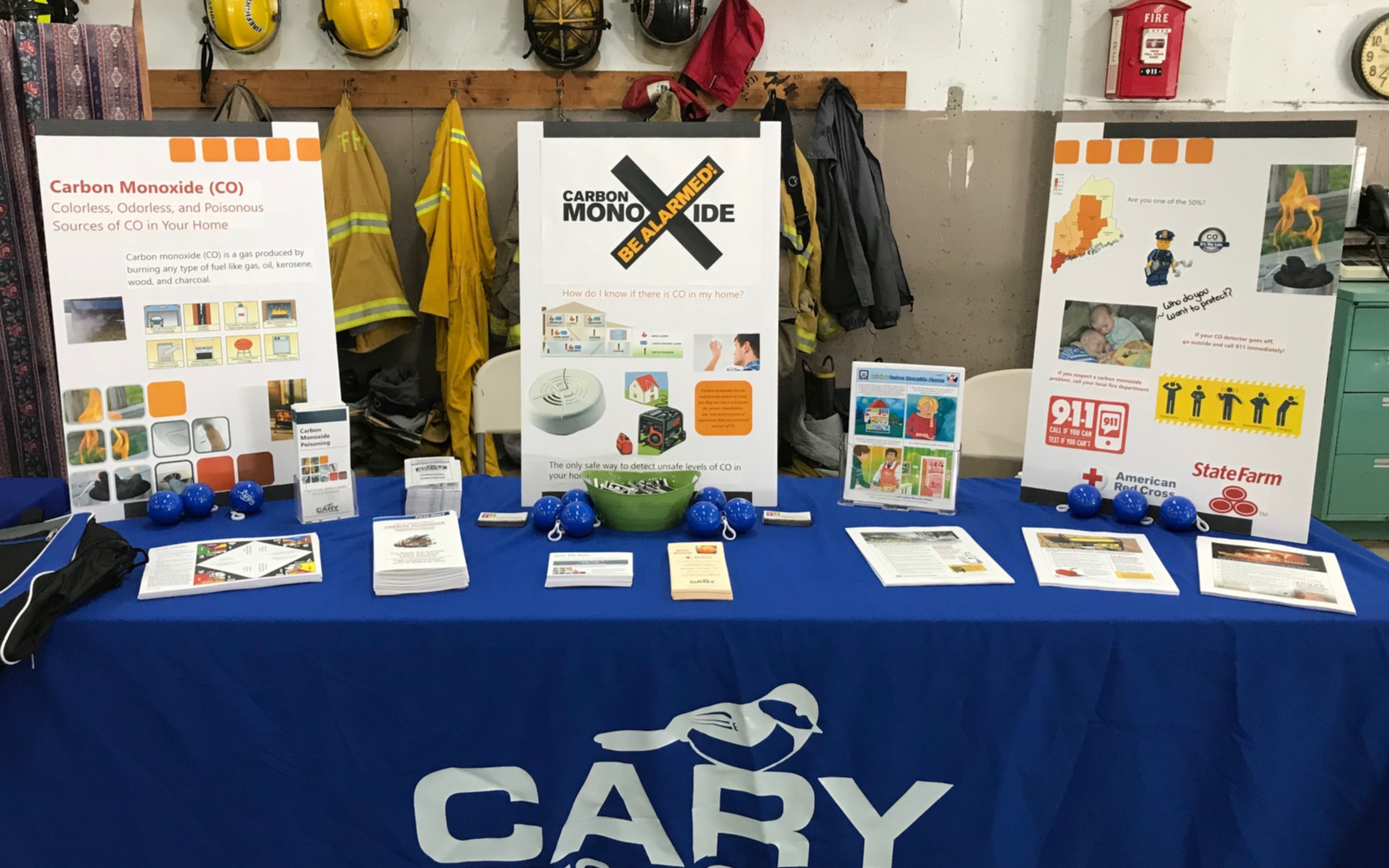
CARIBOU, Maine — Cary Medical Center recently wrapped up a yearlong community education initiative to help Aroostook residents prevent and detect carbon monoxide poisoning.
Through a grant provided by State Farm, and partnerships with local fire departments, this program provided education and resources on the dangers of carbon monoxide as well as home fire safety planning.
“Through this program, we were able to provide 180 carbon monoxide detectors to area residents who did not have a working detector in their home,” said Fire Safety Program Coordinator Elizabeth Singer, who installed most of the detectors in area homes.
“We are thrilled that this campaign met and exceeded our goals,” said Singer. “More people in the community are safer with this added level of protection, and more people have a better understanding and awareness of the danger of carbon monoxide.”
Carbon monoxide (CO) is a gas produced by burning any type of fuel – gas, oil, kerosene, wood, or charcoal. It cannot be seen, smelled or tasted, but can be deadly. The only safe way to detect unsafe levels is with a CO detector.
While out in the community, Singer found that many residents thought their smoke detectors would also detect carbon monoxide. She also noted many people were unaware that smoke and CO detectors need to be changed every 10 years.
“There are detectors that are combination, as in they can detect both smoke and carbon monoxide, but most people only have smoke detectors in their homes,” said Singer. “We want people to know what they have in their homes and to get a CO detector if they don’t have one.”
Aroostook County has one of the lowest rates of CO detectors installed in homes and the highest rate of carbon monoxide poisoning hospitalizations in the state of Maine, Singer said, according to the Maine Tracking Network.
“We are delighted to have had this opportunity to partner with State Farm again to provide this important education opportunity,” said Cary Medical Center CEO Kris Doody, RN. “These opportunities allow us to connect with the community and provide resources that help residents take an active role in their health and safety.”
Eight seminars were held in Healthy You communities over the past eight months, and more than 114 people participated in the seminars. Cary Community Relations also participated in several community events, and provided information on carbon monoxide, fire safety, fire escape planning, and more.
This program was a continuation of the home fire safety training that was presented across the county last year. The program was successful in providing life-saving fire preparedness and planning information to more than 100 people. The program also provided fire escape ladders and installation training to more than 90 households.
Submitted by the Community Relations and Development Office of Cary Medical Center.







